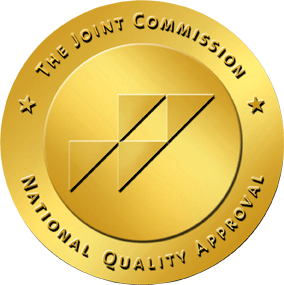Mental health care is entering a new era, where structure, data, and technology converge to offer better outcomes for individuals battling depression. As more clinics embrace intensive outpatient frameworks, PHP-Based Mental Health tools are becoming essential. These tools, built around the structure of a Partial Hospitalization Program (PHP), allow clinics to monitor symptoms, personalize treatment, and track progress in real time.
Clinics like Improving Lives Now in Miami are leading this transformation. Implementing PHP-based digital workflows offers patients structured, consistent, and responsive care while improving internal efficiency and outcomes. In this blog, we explore these tools, how they enhance depression monitoring, and why every clinic delivering or supporting a PHP mental health program should consider adopting them.
What Are PHP-Based Mental Health Tools?
PHP mental health tools are digital and process-based systems designed to support the clinical workflow of a mental health Partial Hospitalization Program. They include:
- Symptom tracking software
- Digital therapy and progress logs
- Patient engagement dashboards
- Medication and side effect monitoring systems
- Therapist notes and session documentation frameworks
- Outcome-based assessment forms (PHQ-9, GAD-7, etc.)
These tools enhance daily patient monitoring, coordinate interdisciplinary teams, and support evidence-based treatment decisions. For clinics offering PHP, these systems create a consistent rhythm of care supporting patients and clinicians.
Why PHP-Based Tools Matter for Depression Treatment
Treating depression effectively requires real-time data, therapeutic structure, and cross-disciplinary coordination. PHPs offer the perfect framework for this, and technology enhances that structure.
Here are the key benefits of implementing PHP-based mental health tools:
Real-Time Symptom Monitoring
Patients complete daily digital assessments that track mood, energy, motivation, sleep, and appetite. Clinicians use this data to adjust treatment plans and catch potential relapses early.
Clinical Accountability
Clinical teams digitally record and review session logs, medication updates, and assessment results. This increases accountability and ensures that every decision is documented.
Seamless Interdisciplinary Coordination
Psychiatrists, therapists, social workers, and case managers access the same patient dashboard. This speeds up communication, aligns care, and ensures a more cohesive treatment experience for the patient.
Custom Progress Milestones
Clinics can define recovery milestones for each patient (e.g., reduced suicidal ideation, return to work readiness) and track them over time with visual dashboards.
Reporting and Compliance
Whether for internal audits, insurance claims, or state regulations, these tools create accurate, time-stamped documentation for every therapy encounter.

Components of a PHP Mental Health Program
To understand how these tools are applied, it’s essential to break down a standard PHP structure:
- Duration: 5 days a week, 4–6 hours per day
- Core Services:
- Individual therapy
- Group therapy
- Psychiatric evaluation and medication management
- Family therapy
- Psychoeducation and skills training
Each of these services becomes a measurable, trackable activity using PHP tools. For example:
- Group therapy attendance and participation are digitally logged
- Medication effects are self-reported and reviewed weekly
- Individual therapy sessions are summarized and categorized
This structure allows for continuous feedback and adjustment, which is vital in treating conditions like depression, where daily functioning can fluctuate significantly.
How Improving Lives Now Uses PHP Tools in Miami
Improving Lives Now offers one of Miami’s most robust mental health partial hospitalization programs. Their PHP is structured around evidence-based care and supported by digital tools that align clinicians, patients, and families.
PHP Schedule at Improving Lives Now:
- Teens and Seniors: Monday to Friday, 9 AM – 2 PM
- Adults: Monday to Friday, 2 PM – 6 PM
- Special services: Substance abuse group therapy on select evenings
Services Integrated with PHP Tools:
- Digital daily check-ins: Clients report mood, triggers, sleep, and appetite each morning
- Therapy tracking: Therapists use digital notes and milestones to plan weekly goals
- Medication management: Clients see a psychiatrist or nurse practitioner weekly, and effects are logged via a secure portal
- Family sessions: Family participation and outcomes are tracked digitally for ongoing evaluation
Using these PHP mental health tools, Improving Lives Now ensures personalized care with measurable impact.
Scaling Depression Care With PHP Tools
Clinics often struggle with scaling depression treatment due to staffing limits and variability in patient progress. PHP-based tools help by:
- Standardizing documentation across therapists and disciplines
- Reducing time spent on paperwork and admin
- Allowing therapists to focus more on patients and less on data entry
- Flagging high-risk patients based on tracked symptoms
These tools create consistency and elevate clinical quality for growing clinics or multi-location practices.

Addressing Challenges and Ensuring Success
While PHP tools offer significant advantages, successful implementation requires:
- Training: Staff must be trained on how to use the platforms effectively.
- Customization: Tools should align with your clinic’s protocols and patient needs.
- Compliance: HIPAA compliance and data security must be top priorities.
- Patient buy-in: Clients should understand the value of logging their data regularly.
With thoughtful implementation, these systems can redefine the effectiveness of outpatient depression care.
Transform Your Mental Health Program with PHP Tools
If your clinic is ready to streamline depression care, PHP-based tools offer the structure, insight, and flexibility you need. At Improving Lives Now in Miami, we use these tools daily to help patients make real progress, while our clinicians stay efficient, collaborative, and focused on care.
Whether you’re managing a team of therapists or seeking structured outpatient support for yourself or a loved one, we’re here to help you take the next step.
7171 SW 62nd Ave. Ste 300, Miami, FL 33143
Email: in**@***************ow.com
Opening Hours: Mon – Fri 9:00 am – 7:00 pm
Tel: (305) 280-1440
5 Frequently Asked Questions (FAQs)
- Are PHP tools only for large clinics?
No. Small clinics can adopt modular tools or start with symptom tracking and scale as needed. - How often should patients be monitored using PHP tools?
Daily monitoring is ideal for PHP patients. Weekly reports can be generated for review. - Do these tools replace face-to-face therapy?
Not at all. They enhance therapy by giving clinicians real-time insights between sessions. - Can these tools help with insurance reimbursement?
Yes. Digital documentation improves billing accuracy and supports medical necessity claims. - What software platforms are recommended for PHP mental health programs?
Look for platforms that offer EHR integration, customizable dashboards, and secure mobile access.





